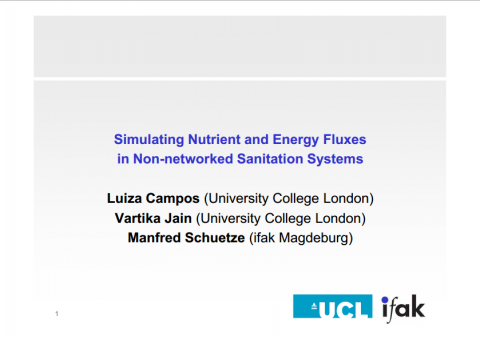Modelling the next generation of sanitation systems Various documents on results from research grant Campos, L. C. (2013)
Bibliographic information
Campos, L. C. (2013). Modelling the next generation of sanitation systems Various documents on results from research grant University College London, UK
Filter / Tags
Fundamental research and engineeringEnglish
External links
Further information on discussion forum
Downloads
1 - Modelling the next generation of sanitation systems (2 page description, 2012)
Type: application/msword
Size: 0.09 MB
2 - Simulating nutrient and energy fluxes in non-networked sanitation systems (paper at FSM2 conference, Durban, South Africa, Oct. 2012)
Type: application/pdf
Size: 1.05 MB
3 - Simulating nutrient and energy fluxes in non-networked sanitation systems (presentation at FSM2 Conference in Durban, South Africa, Oct. 2012)
Type: application/pdf
Size: 0.87 MB
4 - Short presentation at SuSanA/SEI webinar number 5 (21 Jan. 2014)
Type: application/pdf
Size: 0.59 MB

